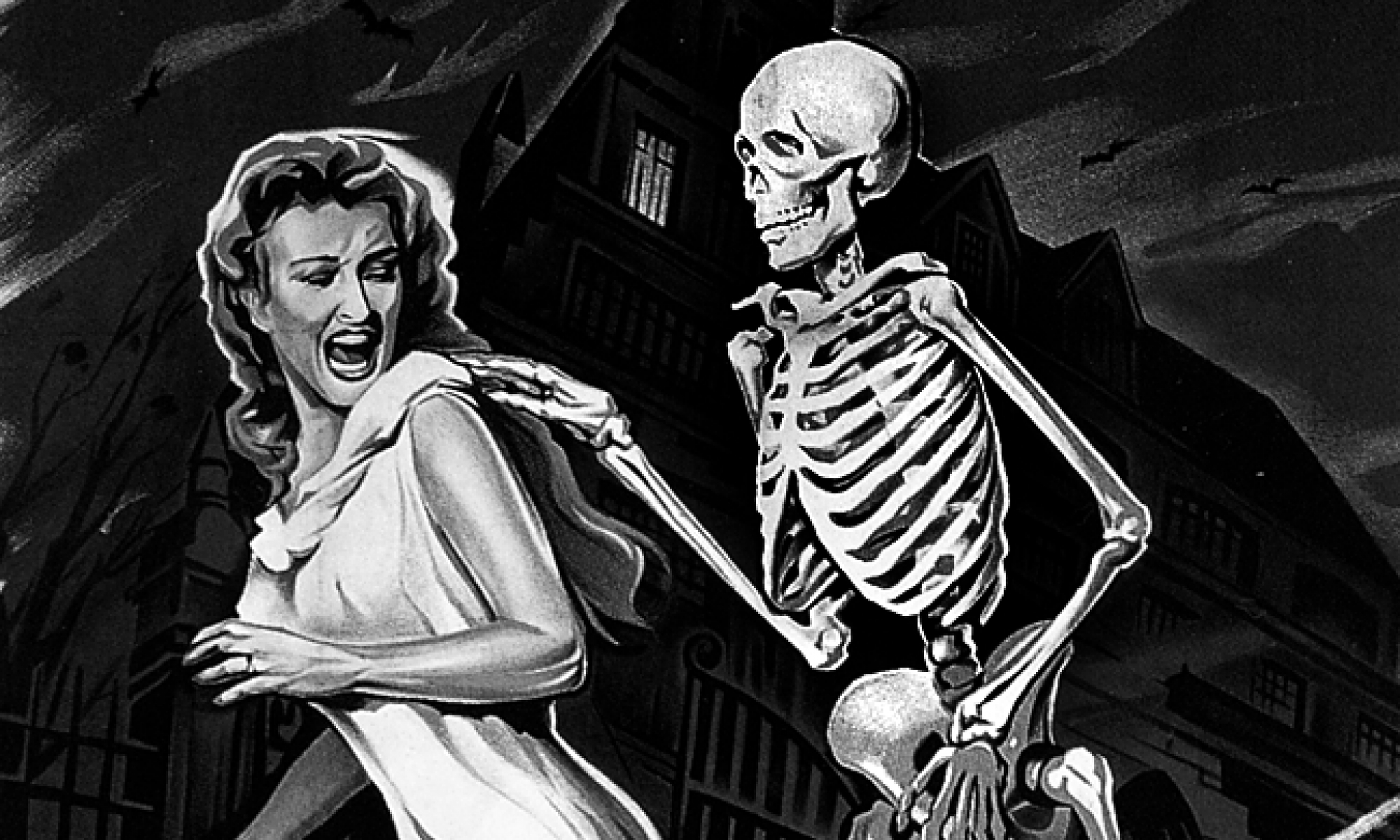In Alejandro Amenabar’s film The Others (2001), a mother, Grace, strives to protect her children from the evils of the world while also struggling with the disappearance of their father during World War II. The film is set in post-World War II, where Grace and her two children (Anne and Nicholas) live in a large, old home in the Channel Islands. Religion is a common theme within the film, as Grace was raised Roman Catholic and wants her children to be saved from an eternity of pain in Hell. Through teaching Anne and Nicholas, who are approximately ages 11 and 7, about Christ in the safety of their home, Grace’s children are hidden in darkness because of their allergy to light. Because Anne and Nicholas cannot be in direct light, they are hushed away into dark, quiet rooms within their manor and Grace is forced to close all curtains and doors so the light does not pour in and harm them. When new servants arrive to help out with the estate, Grace and her children notice “intruders” creeping around the house, and believe it has become either invaded by Nazis or haunted by a previous family who lived there (1:00).
Alejandro Amenabar, who wrote and directed the film, is openly atheist, despite being raised Catholic (Wikipedia). There are a couple of arguments made within his film: that there is no Hell like the ones described in the Bible, and that no one really knows whether God exists or not. Both of these arguments are made by the end of the film when Grace, the one who is adamant and rigid about her knowledge of Christ at the beginning of the film, asks, “What does all this mean? Where are we?” and admits to her children that she, in fact, only knows just as much as they do when it comes to Heaven, Hell, and God (1:36).
Based on the official trailer for The Others, the film is targeted to those who enjoy psychological thrillers, mysteries, or horror films, aged 15+. Because of the heavy religiosity within the film, Amenabar may have wanted his film to be targeted at those who believe everything the Bible says in an attempt to persuade them to accept the fact that there is no way to know anything about an afterlife until one is actually there.
Body horror is not present within the film, but as mentioned above religion is the most common trope used to make the argument. Other tropes that are used are an old, large house distant from other homes, elderly people, children, and also there is darkness within the house because of the children’s skin allergy. The isolated manor the film is set in emphasizes the loneliness the family feels and how cut off they are from the rest of the world. It aids the plot of the story because the family does not become overly suspicious when they have no contact with anyone other than the servants, which is to be expected because of how far out they live. The use of elderly people is also used throughout the film with Bertha (the main servant) and the old “witch” who contacts the family through a séance (37:08). Older people are seen as frightening to some audience members perhaps because the elderly are closer to death and may have a connection to those on the other side. Children are seen this way as well; though they are not close to death, they are also targeted to be connected to ghosts or spirits in horror films. The darkness looms in a majority of scenes, which contrasts with the end of the movie when Grace and her children realize they are dead and face “the light.” The darkness within the film represents the rigidity of Grace’s beliefs and how they contrast with her actions toward her children, while the light represents truth or release from the control of a harsh belief system.
The most controversial aspects of the film come from the religiosity of Grace and how her faith was shaken by the end of the film. This is controversial because it suggests that there are no answers when it comes to an afterlife, which can be hard for a lot of people to come to terms with. Another controversial part of the film is the hypocrisy revealed at the end of the film when the audience finds out that she is the one who killed her children and then herself, placing them as ghosts in the home they died in.
I find The Others successful as a horror film mainly because of its ingenious plot twist and spot-on musical score. I rate this film as 9/10 and would definitely recommend it to those who enjoy psychological thrillers and horror films. The film also requires active attention in order to understand the ending. I’m not sure if it would be completely successful when it comes to making someone ditch their faith, but I feel it would definitely make one question whether religion has all of the answers to life and afterlife.
Traci is finishing out her degree in Human Development at The University of Texas. She became a fan of the horror genre at a very young age and watches just about every scary movie that comes out in theaters. She, too, likes piña coladas and getting caught in rain.
